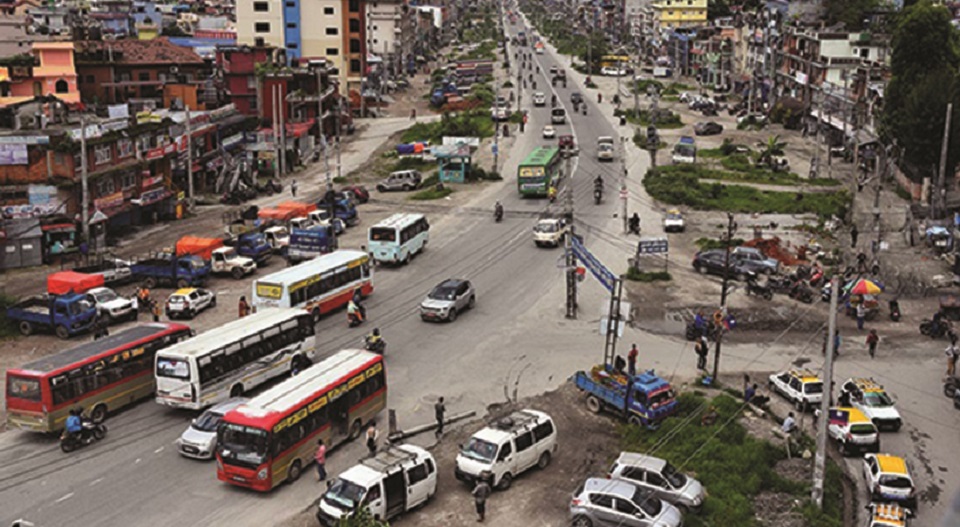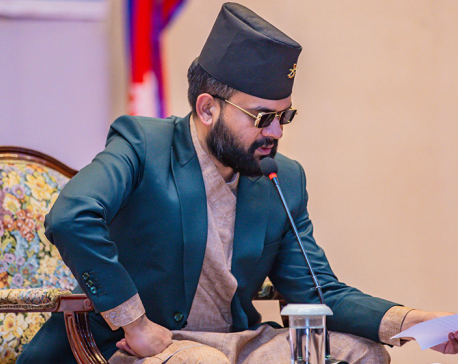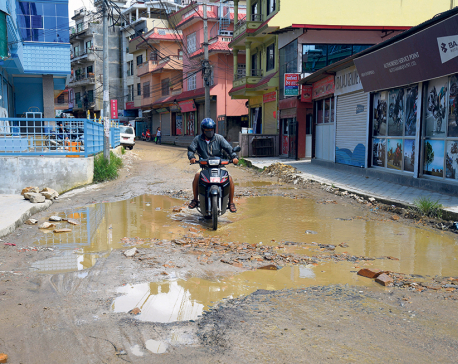
OR
Opinion
Relocating the Capital City: Easy as a Balen’s Tweet?
Published On: April 23, 2023 09:00 AM NPT By: Hari Prasad Shrestha

More from Author
- Why Federalism has Become Risky for Nepalese Democracy
- Hunger is a Serious Problem in South Asia
- Tourism Can Be A Catalyst For Change in Karnali Province
- Nepal’s Southern Border Has Become An Open Regional Crossroads
- Opening a new gateway for Kailash Mansarovar Yatra through Nepalgunj-GunshaNagari flight
Balen Shah, the mayor of Kathmandu, raised the matter in question through his Tweet to move Kathmandu to another location expressing his dissatisfaction with the federal government in some issues. "Either work for the benefit of Kathmandu, or the Singha Durbar should be moved to another city. We Kathmandu residents have no objection, whether you move the Singha Durbar or move the capital. We need our heritage, culture, art, civilization, not politics” recently he wrote in his Tweet.
In the current national perspective, it seems paradoxical to move the capital city out of Kathmandu. Capital city other than Kathmandu may not only be inappropriate but also the subject of our current national capability and capacity constraints. This can't be done on a whim, without proper study as there are huge risks involved in this process and the government is hardly in a position to spend trillions of rupees to relocate the capital city. Moreover, only the federal government could alone hardly take responsibility, without support of pertinent collaborators including provincial and local governments for such a massive scale of work of relocation. The Tweet looks like a personal rather than a formal decision of the Kathmandu Metropolitan City or the desire of the people of Kathmandu as a whole.
However, in an informal way, previously some politicians and experts had expressed their opinions far and against relocating the designation of the capital city to another city. Some opine that Chitwan or Nawalparasi district could be an appropriate alternative to Kathmandu as a capital city as these districts have vast areas of flat lands, perfect for a new planned city and an international airport. It is almost centrally located with nice weather, not as hot as central Terai and not too cold. Major highways are already passing through, which touches almost all the key cities in the country.
Others are of the opinion not to relocate the capital from Kathmandu to other places citing examples of Brasilia, or more recently Astana, and Naypyidaw. The first one still doesn’t work as a modern city. The second one is a vanity project of a leader. The third one is too far north from the cosmopolitan southern center of Myanmar and consists of empty highways, empty malls, empty airports and is devoid of people.
There is no doubt that Kathmandu is suffering from deteriorating air quality, unplanned infrastructure and housing growth, environmental risks, water contamination, lack of enforcement of stricter regulations, growth limitations of drinking water, energy, excess of dusty roads full of potholes and uncontrollable transportation.
Moreover, in the past ten years, the number of vehicles on Kathmandu’s streets has risen threefold. The problem has become so acute that many of its two million residents are left wondering: at what point will their city become unlivable? During surges in Kathmandu traffic congestion, the level of small particulate matter can measure over 500 micrograms per cubic meter, or 20 times the World Health Organisation’s safe upper limit.
With all these constraints and problems, there is still room to make Kathmandu good enough to live by the collective and coordinated efforts of all levels of government, which was the major concern of Balen's Tweets. If we observe the recent global trends in relocation of capital cities, only a few countries have accomplished to transfer capital cities, and many became unsuccessful after decades of planning and construction efforts. There are numerous examples of capital city transfers around the world.
The government of South Korea announced on 11 August 2004 that it has chosen a site of some 7130 hectares in the Yeongi-Gongju region, 150 kilometers south-east of Seoul, as the new capital in Sejong City. The Yeongi-Gongju region, which was selected from among a list of four finalists, won on transport and environmental grounds. The site is close to existing high-speed railway and expressways. The Cheongju airport is also nearby. The government has planned to transfer the capital there by 2020, which is still under construction.
The government of Kazakhstan organized an international competition for the master plan and design of the new city of Astana, its new capital. The government declared that the Japanese architect Kisho Kurokawa was awarded the first prize. Kazakhstan gained its independence in 1991. The capital of Kazakhstan moved from Almaty to Astana in 1997. The government officials cited several problems with keeping the capital in Almaty, such as the city´s risk of seismic activity, insufficient room for expansion, and priority to the international border.
The decision to shift Tanzania´s capital from Dar es Salaam to Dodoma was made more than four decades ago. The government established a Capital Development Authority, which was headquartered in Dodoma. The Parliament building was being constructed there with a view alternating session in Dodona, plots were being allocated to diplomatic missions, and some infrastructure was constructed but the whole concept to transfer the capital city is under a big question mark.
Islamabad, the capital of Pakistan, was built during the 1960s to replace Karachi as Pakistan's capital. However, the capital was not moved directly from Karachi to Islamabad, but first moved from Karachi to Rawalpindi district and then to Islamabad, which was first part of Rawalpindi district and later given the individual status of a district.
Myanmar has also a new capital city, called Naypyidaw, or Abode of Kings, being built about 460 km (300 miles) north of the old capital, Rangoon. The rutted and overcrowded roads of Myanmar suddenly give way to smooth eight-lane motorways as you approach the new capital, however the streets are still lonely with slow development of houses and markets.
South Africa has a different example of three capital cities. Pretoria is its administrative capital, Bloemfontein is its judicial capital, and Cape Town is its legislative capital. Therefore the process of relocation needs serious debate and discussions with all stakeholders on shifting the designation of the capital city from Kathmandu. This is a high-risk task and if the capital city fails to move after a certain interval of time, the social, political and economic impacts might be very costly and severe to the nation. As far as the cost is concerned, for example, the Government of Indonesia has decided to relocate its capital city from Jakarta to East Kalimantan and the whole development is estimated to cost Rp 460 trillion (US$32.8 billion) which is equivalent to three years’ annual budget of the Nepal Government.
You May Like This

KMC Mayor Shah blessed with baby daughter
KATHMANDU, Sep 3: Balendra Shah (Balen), the mayor of Kathmandu Metropolitan City (KMC), and his wife Sabina Kafle, celebrated the... Read More...

Balen’s timely decision to protect public properties
In a political landscape marred by corruption and abuse of power, it is encouraging to witness a leader who dares... Read More...

City of dreams or stuff of nightmares?
Living in Kathmandu has its perks as well as its downsides. Be it the pretty cafes or the marvelous historical... Read More...



Just In
- World Malaria Day: Foreign returnees more susceptible to the vector-borne disease
- MoEST seeks EC’s help in identifying teachers linked to political parties
- 70 community and national forests affected by fire in Parbat till Wednesday
- NEPSE loses 3.24 points, while daily turnover inclines to Rs 2.36 billion
- Pak Embassy awards scholarships to 180 Nepali students
- President Paudel approves mobilization of army personnel for by-elections security
- Bhajang and Ilam by-elections: 69 polling stations classified as ‘highly sensitive’
- Karnali CM Kandel secures vote of confidence
















Leave A Comment